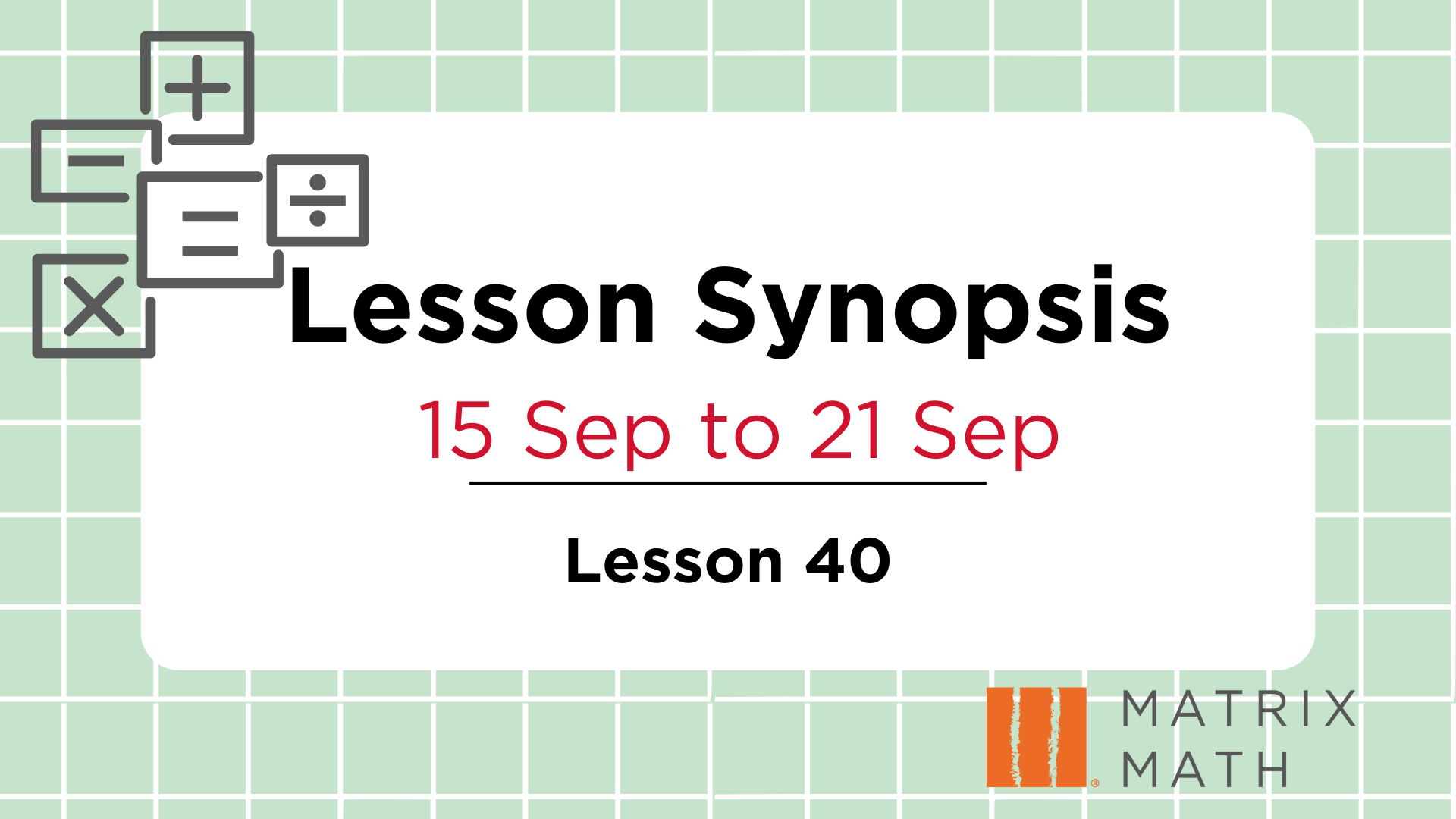
14 September 2025
At Matrix Math, we provide an engaging and detailed learning experience for your child. Matrix Math Tuition programme focuses on essential concepts that will further strengthen their mathematical foundation. The lesson synopsis gives parents a clear preview of the topics and problem-solving skills that will be covered in class. At Matrix Math, we ensure that each lesson is designed to build confidence and mastery in math, preparing students for success in both school and beyond.
In Lesson 40, we will start a new topic on “Time“. This lesson will focus on introducing the fundamentals of reading an analogue clock and translating between digital and analogue clocks. Through engaging activities and exercises, students will learn how to tell time accurately using traditional analogue clocks and understand the connection between analogue and digital representations of time.
Additionally, this week, we will be providing all Primary 1 students with a supplementary multiplication paper for extra practice. This practice paper aims to reinforce their multiplication skills and build confidence in applying multiplication concepts in various contexts.
In Lesson 40, our focus remains on guiding the children through higher-order problem sums related to Volume.
During this upcoming session, we will delve into the following essential concepts:
This week, in Lesson 40, we will transition to Time Lesson 2, focusing on problem-solving skills within the topic of Time. The session will cover various problem types that students commonly encounter in time-related questions, providing a deeper understanding of how to approach and solve them effectively.
Key areas of focus include:
We will continue with our exploration of the Area and Perimeter 3 topic. In this lesson, the focus will be on problem sums involving breadth as a unit of measure. Our analysis of various schools’ past examination papers shows that such types of area and perimeter questions are frequently tested.
During this lesson, we will cover four variations of these types of questions, enabling our students to be adequately prepared for such problem scenarios. Our lesson plan aims to foster a deep understanding of these concepts, enhancing their problem-solving skills and bolstering their confidence in tackling these types of questions.
In Lesson 40, we’ll continue SA2 preparation with “Select 13.” Please ensure your child attempts the prescribed homework, crucial for exam readiness. These practice papers are tailored to prepare them for the final year exams.
For additional resources, register as a member on Matrix Math’s Self-Learning Portal: https://www.matrixmath.sg/self-learning-math-portal/ to access pre-recorded lesson videos complementing their learning.
Your active involvement is valued. Feel free to reach out with any inquiries.
This week, we will continue with PSLE Revision Lesson 14.
This lesson will involve a systematic review and practice of essential topics, concepts, and problem-solving methods commonly tested in the PSLE. We aim to strengthen students’ understanding, problem-solving abilities, and confidence as they prepare for the upcoming examination.
Active participation and completing the assigned additional practice exercises are crucial for effective revision. These exercises are designed to align with the PSLE requirements, providing students with valuable exposure to the types of questions they may encounter and opportunities to apply their knowledge and skills effectively.